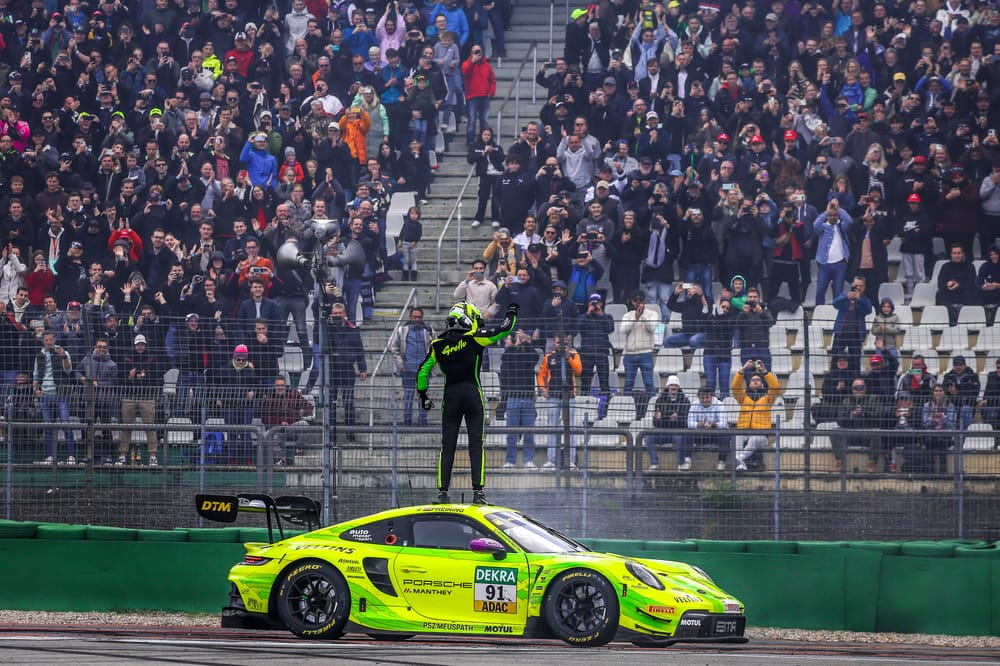The historical list of drivers to have started a Formula 1 championship race is not the most exclusive club out there. As of the start of 2024, it is heading towards the 800-name mark - albeit of course can be reduced somewhat if you don't count the 1950s Indianapolis 500s, that eternal statistical aberration in F1.
Those Indy 500s also contribute heavily to the huge, triple-digit roster of specifically F1 'one-and-dones' - drivers who, at least de jure, have the one championship start under their belts and no more.
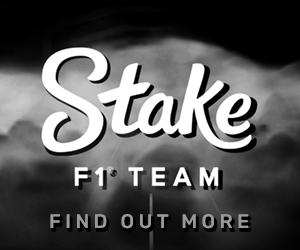
But only six of those drivers arrived after 1990. F1 has changed forever - a one-off appearance is now harder to come by, so a bigger badge of honour, but also potentially the culmination of years of hard graft, and in that sense a substitute for a dream that had probably looked very different.
In 2017, Jack Aitken finished runner-up to George Russell in GP3. Three years later, he lined up for his sole F1 start as a consequence of a COVID infection and a frontrunning F1 team wanting to further evaluate none other than Russell. Now, another three years on, the F1-adjacent part of his career has effectively reached maximum entropy - an epilogue of hypotheticals, punditry gigs and some behind-the-scenes undisclosed sim work, written out simultaneously to the new chapter that has already arguably yielded more, certainly in terms of stability and longer-term confidence but also accolades.
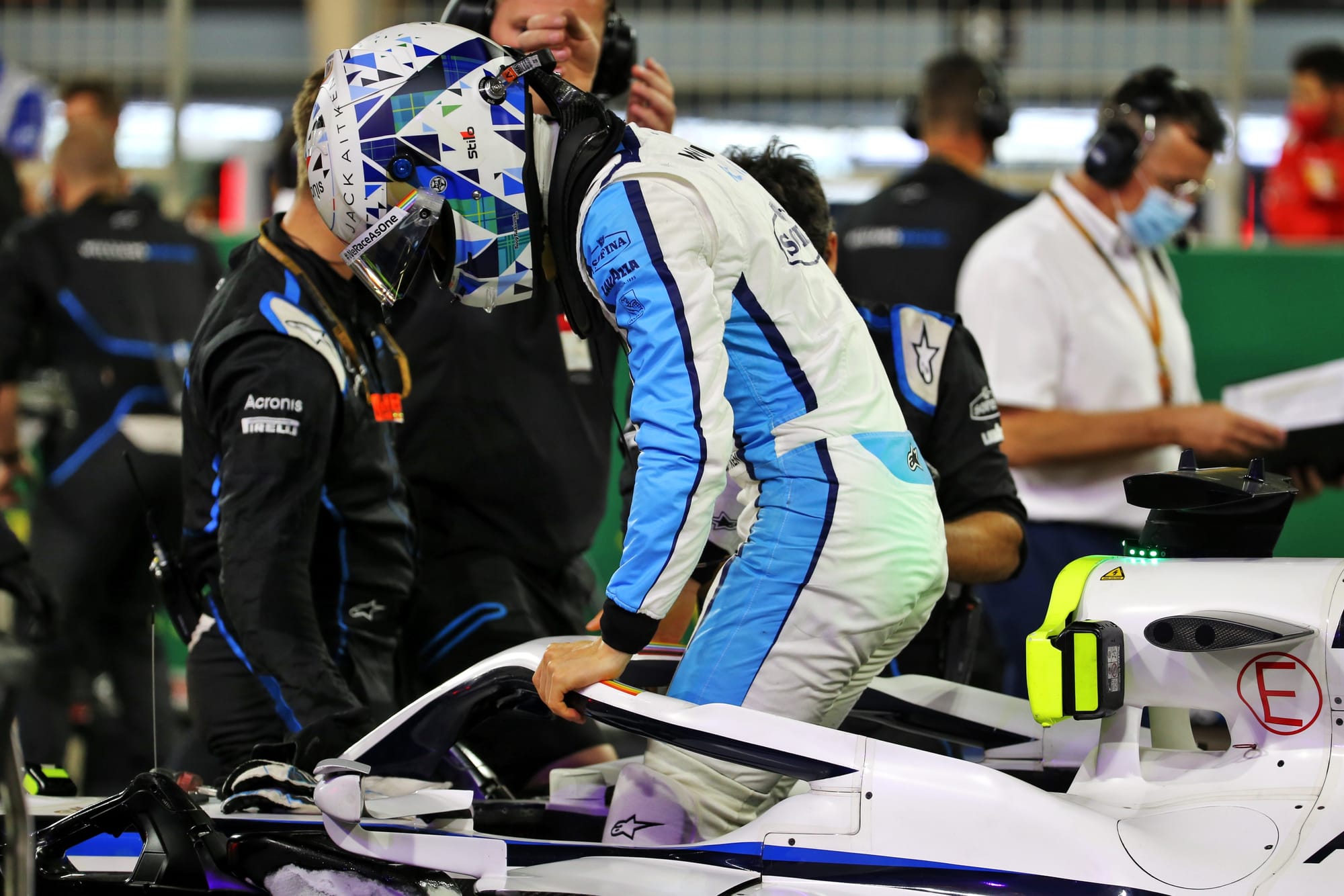
The Race sat down with Aitken in his GT3 team Emil Frey Racing's motorhome at Hockenheim for a long and candid conversation about life on F1's periphery and finding closure in a grand prix racing dead end.
THROUGH THE RANKS
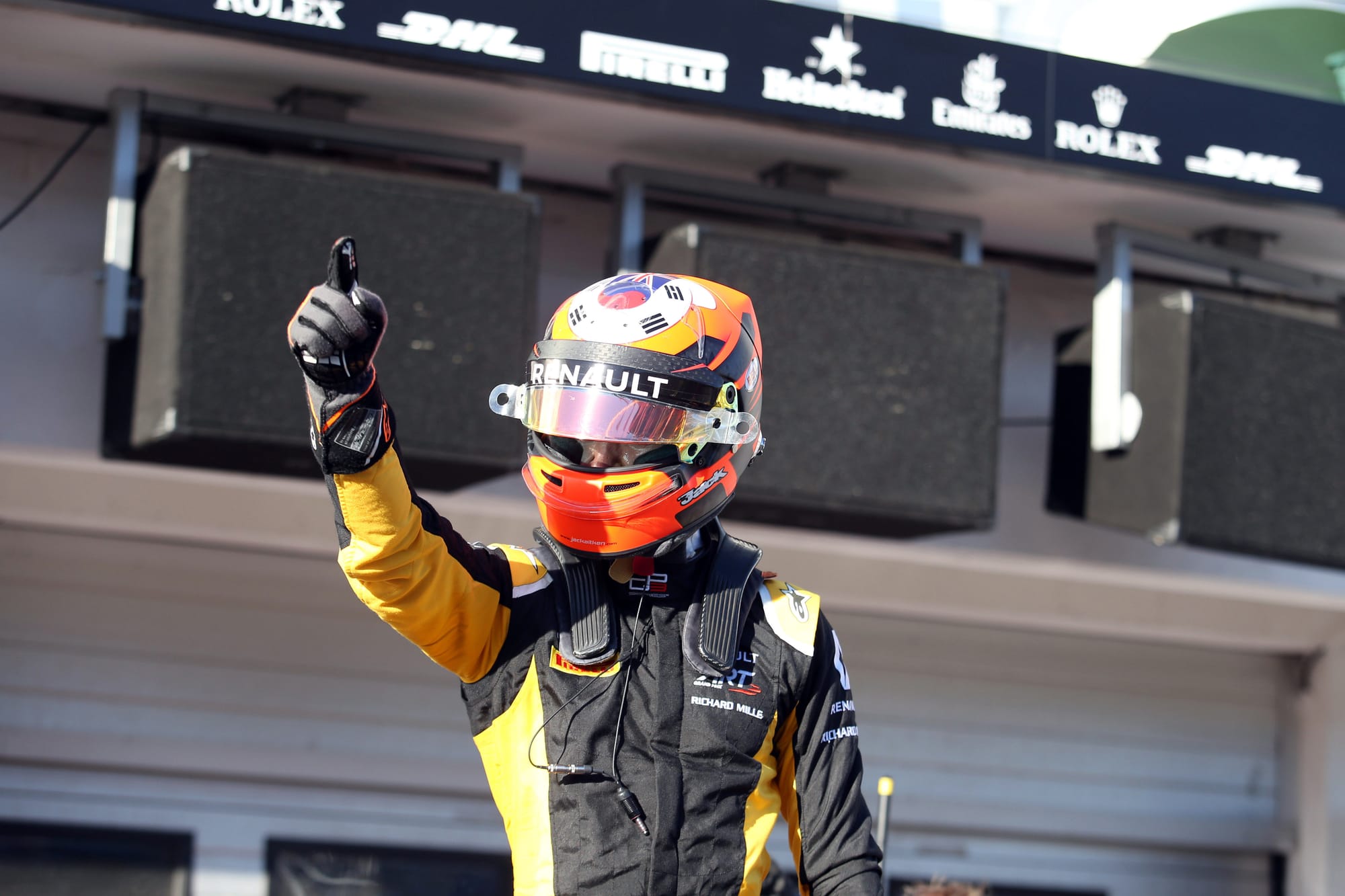
In addition to being runner-up in GP3, Aitken won a pair of titles in two-litre Formula Renault, won races in Formula 2 and had a spate of successful cameos elsewhere in various open-wheel categories.
He'd had a good career - successful enough to grant him enough superlicence points, up and down enough to where he was never going to be in the same tier of your Max Verstappen and Charles Leclerc supernovas. Certainly, there was enough there to at least have a closer look - which Renault did, taking him under its wing as a reward for those two-litre titles, then giving Aitken his first F1 tests and a reserve gig, and then finally... letting him go.
"So I was in the Renault academy for four years - I would say for the first three years of that there was never any thought of taking my career in another direction," Aitken recalls when I ask him when he realised an F1 race drive might not be happening.
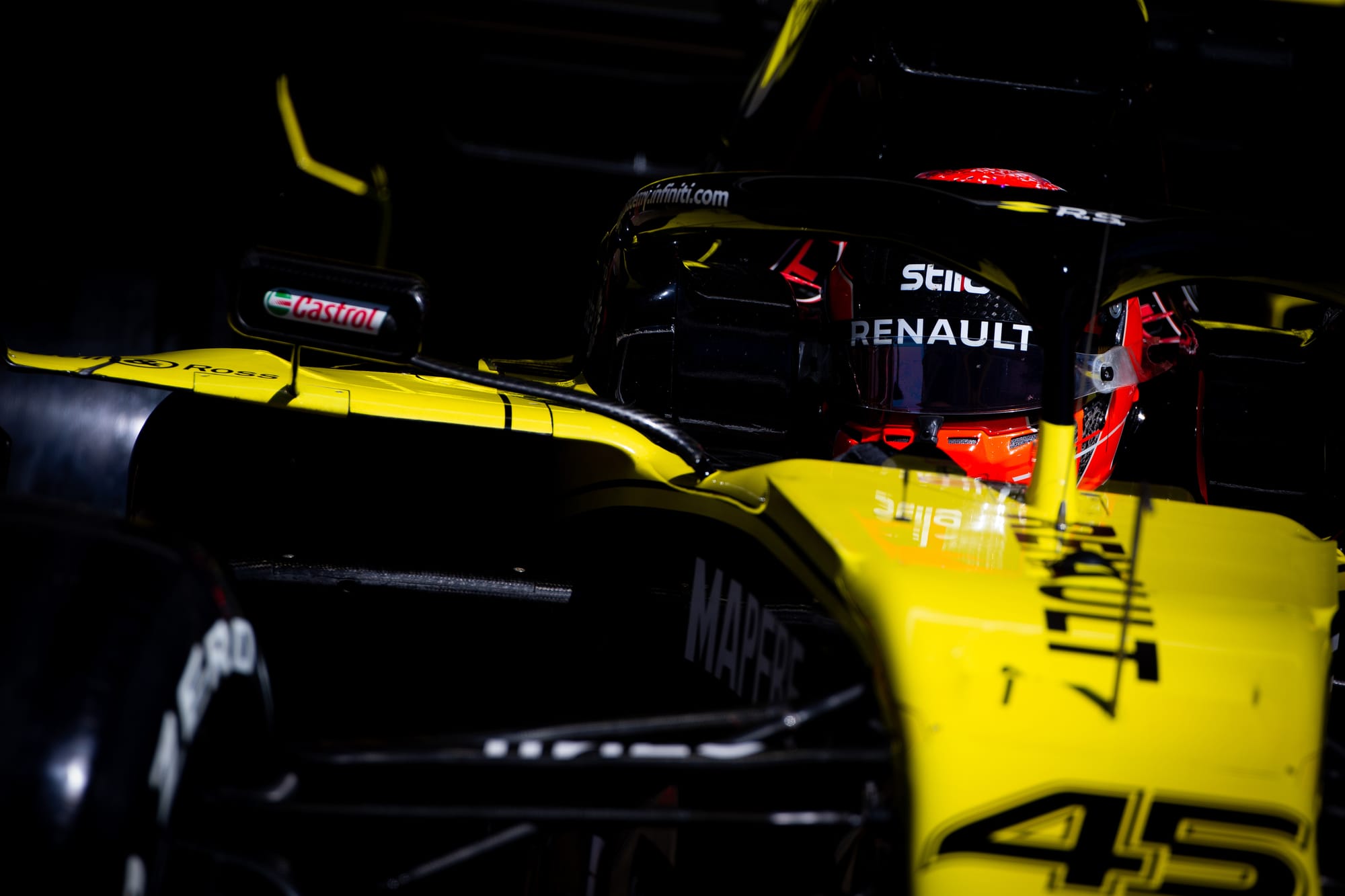
"Possibly a mistake. When I talk to younger drivers now I'm like 'you really should consider that stuff [outside of F1], at least just open doors elsewhere... Because statistically speaking it's more likely, bro'.
"That final year, 2019... the first Campos year [in Formula 2], quite a successful year. At the end of that year, because I felt like I'd done quite a good job with Campos... you know, a fantastic team, they're like family to me, but they do not have the resource of [F2 heavyweights] ART, DAMS, Prema, the rest of them.
"So I went back to Renault and I was kind of pitching like 'hey, I'd done a really good job, what's the situation moving forwards?'.
"There wasn't much happening. And I was kind of butting up against the wall and thinking 'well, if I've just done everything I can, I've won three races in a car that hasn't won a race since Rio Haryanto or whatever, and there are still doors not opening', that's when I was like 'I need to come to terms with starting to look at Plan B', basically."
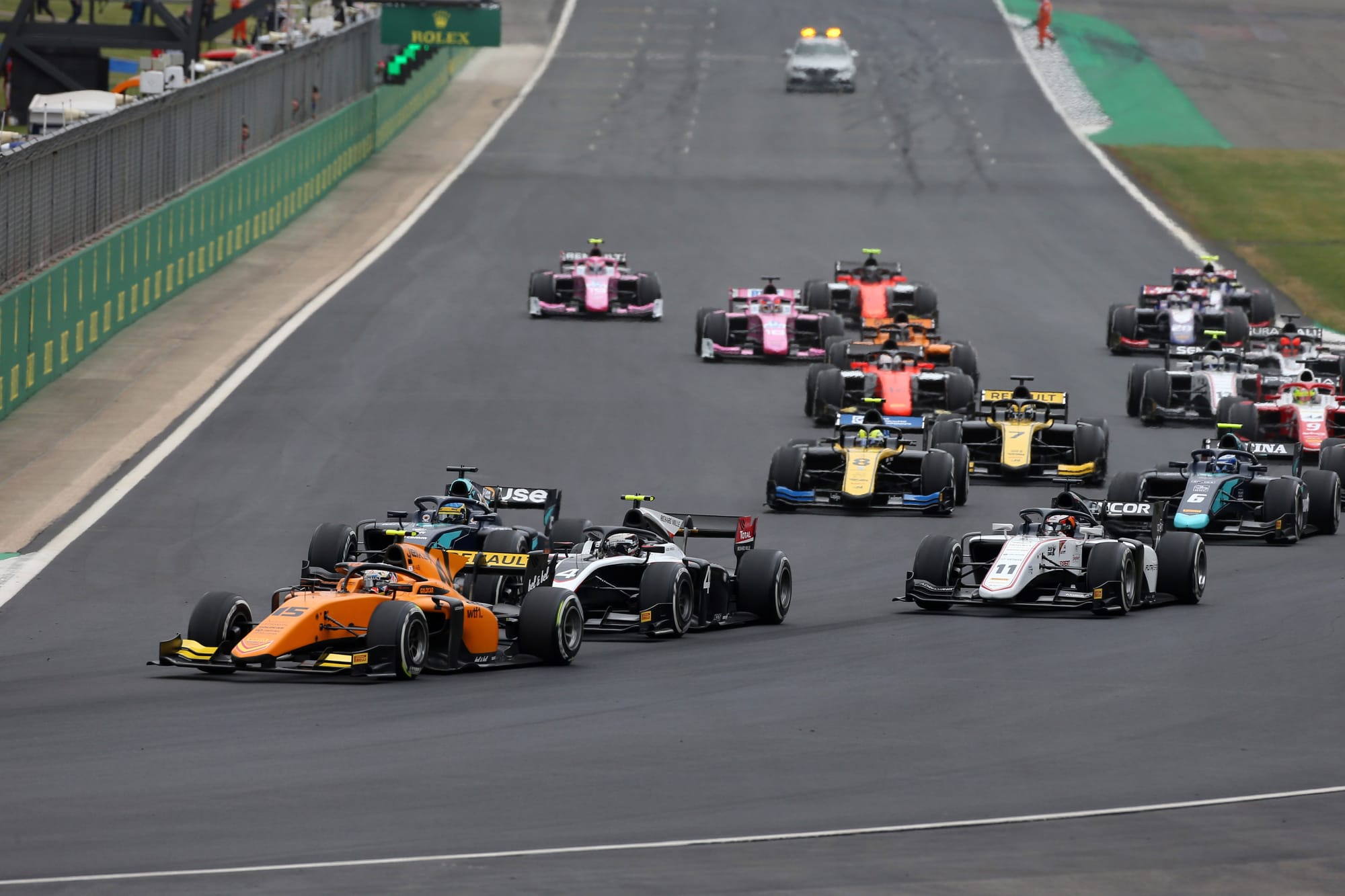
He is slightly mistaken - the Campos GP2 entry did win a race with Mitch Evans the year after Haryanto's three-win salvo in 2016, but in the time since GP2 rebranded to FIA F2 it's Aitken who is responsible for three of the team's four wins (the fourth having come last year).
Given that Campos season had come a year after he was roundly beaten by the F1-bound Russell as his F2 team-mate, it was probably never going to be enough to change the maths on an F1 future.
But even if "the relationship was not going anywhere with Renault", Aitken's stock was high enough to at least stay on the F1 radar with a pivot to Williams - where being reserve actually did convert into the once-in-a-lifetime opportunity to get on the F1 grid.
"WAITING FOR SOMEONE TO FALL DOWN THE STAIRS"
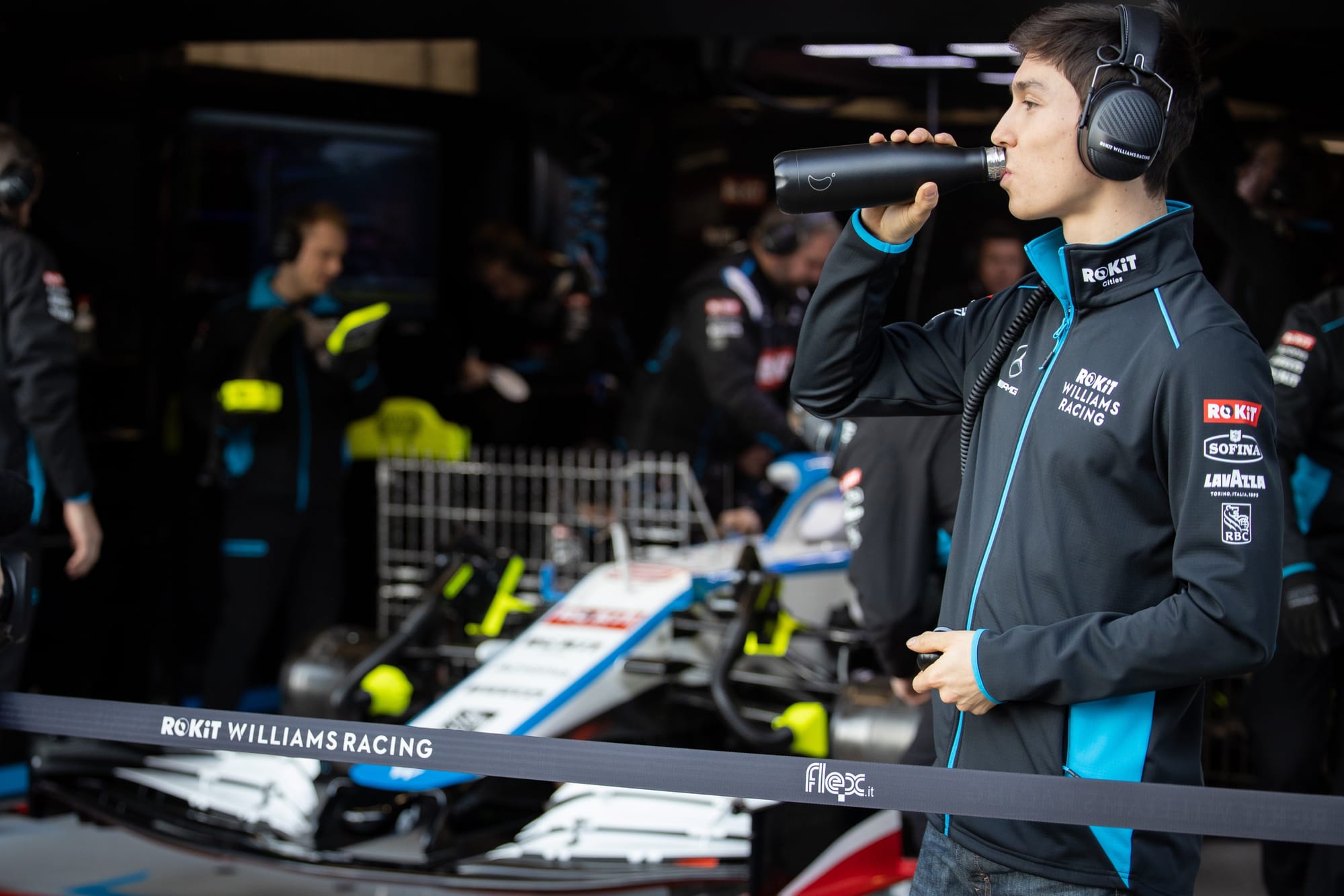
But that was one weekend, in one very weird year.
Most drivers in Aitken's situation - where you're young and exciting enough to stay on the F1 periphery but not young and exciting enough to get established F1 drivers fired or overlooked in your favour - don't even get that much.
And, in his time chasing his F1 dream, that strange limbo that we call an F1 reserve driver role was something that became intimately familiar.
"I mean, I think I can speak frankly about it - not because I had a bad time, I really enjoyed my time with Williams and with Renault before that. But it is a boring job," Aitken muses.
"You're a spare part. You come to a weekend- okay, yeah, you can sit in on the meetings, maybe you can do some basic jobs here and there, but really there's nothing for you to do except wait for someone to fall down the stairs - and that's a terrible life to live!
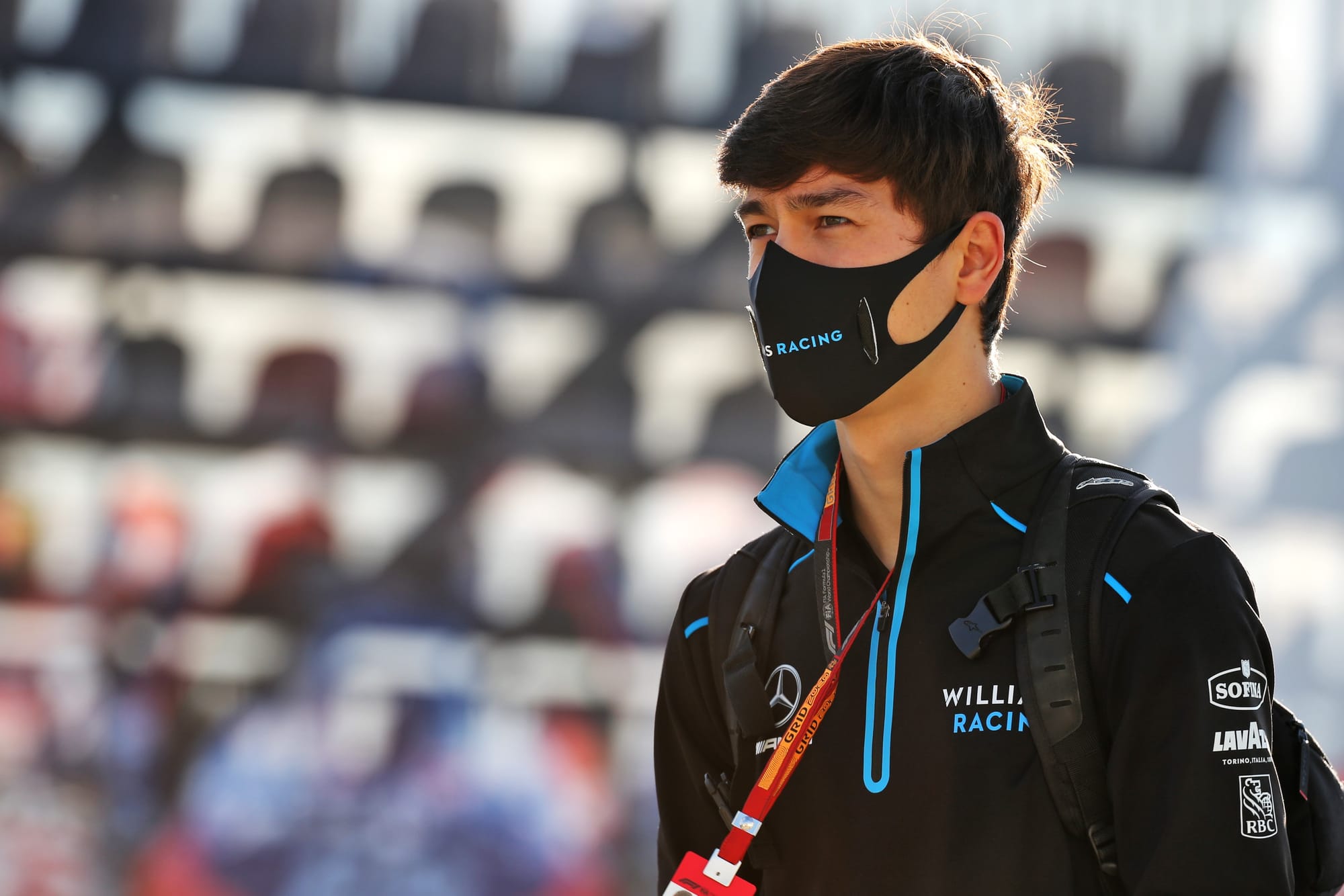
"So, yeah, most people hate it.
"I would get tips from other reserve drivers, ex-reserve drivers saying 'if you want a good place to sleep, this part of the truck is good' or 'make sure you go to these guys for catering, they are the best'."
Aitken does say of his time at Williams specifically that the team was "happy for me to do my own thing and go racing" and "never insisted on me coming to every race and being the classic reserve that gets bored in the motorhome" - but even doing it intermittently clearly didn't really reignite whatever novelty once existed.
COMPUTER COWBOYS
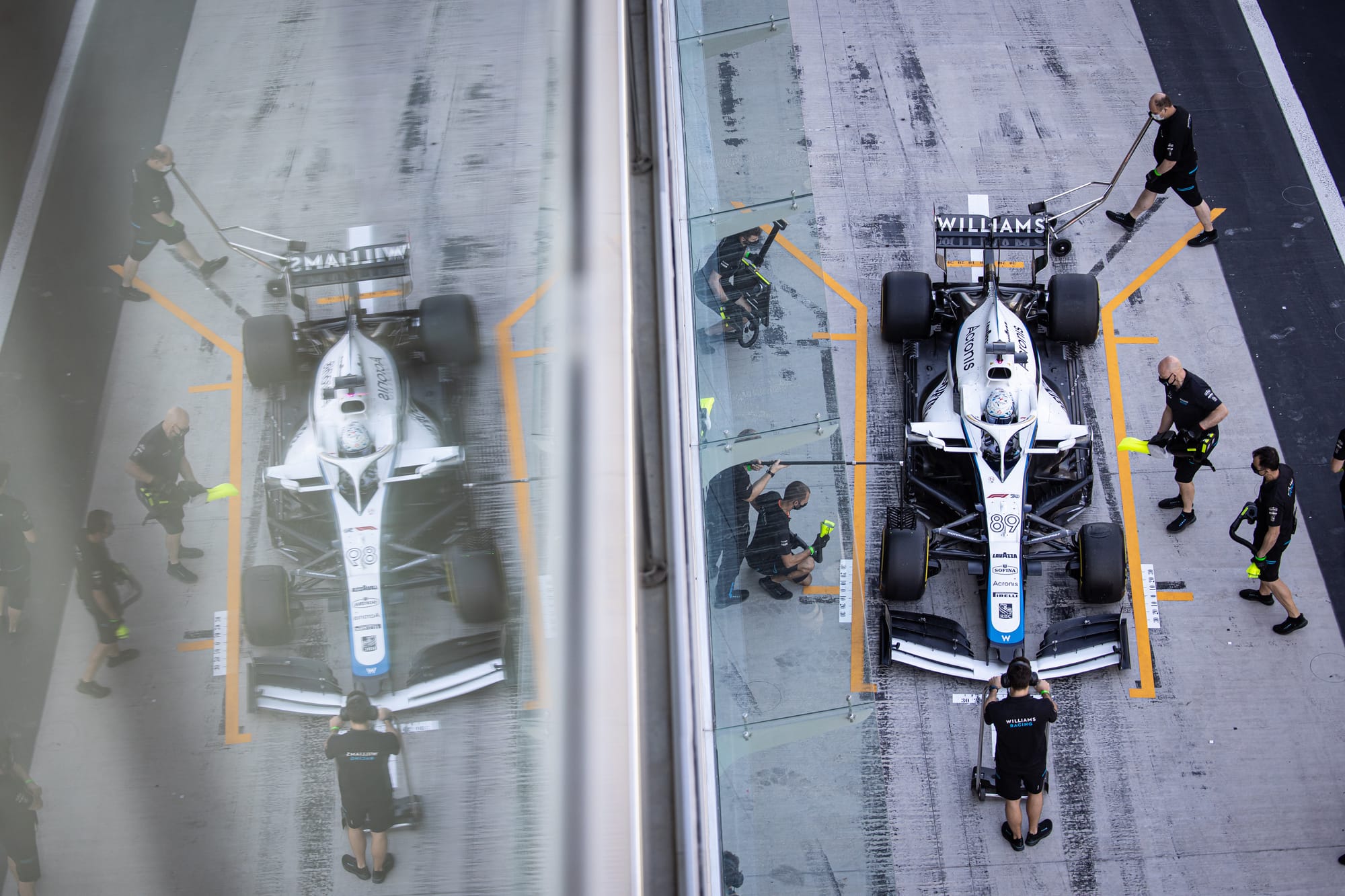
In the F1 of old, of course, such a role would also come with a metric ton of testing mileage, but this is not the F1 of old - so there's a different accompaniment.
"The sim role is quite a big one in those contracts, I guess," acknowledges Aitken.
"I've done it, can't say I enjoy it, it's hard work with not much reward for the driver at the end of it, but you're part of the team, you're actually contributing to something, so that was nice.
"You actually did something, which is something."
That "something" varies in terms of the time of year or time of the week - Aitken stresses sim work is "even more important" in the off-season when preparing the upcoming car, which means that "there's not really any time of the year - except during the shutdown, when you can't do construction or anything - where the simulator isn't being used".
It means a lot of hours of work for racing drivers, driving but not really driving.
But the aspect you hear about more often is the race weekend gig targeted not at longer-term development but at shorter-term success in a given grand prix.
"Usually if you're doing a full race support programme, you'll turn up on Thursday, to do preliminary running and run through some test items to prepare them for when they're out on track. Then you get to the sim again on Friday, watch FP1, after checking that the sim works, and you wait for requests to come in from the circuit," Aitken explained.
"So the engineers will say 'we've got this problem with the car, could you test A and B and give us an indication', so we would do those.
"It's got to be quick. And then the same thing after FP2, after FP3. And at that point your weekend is kind of done because obviously after qualy you're in parc ferme, you can't really change much."
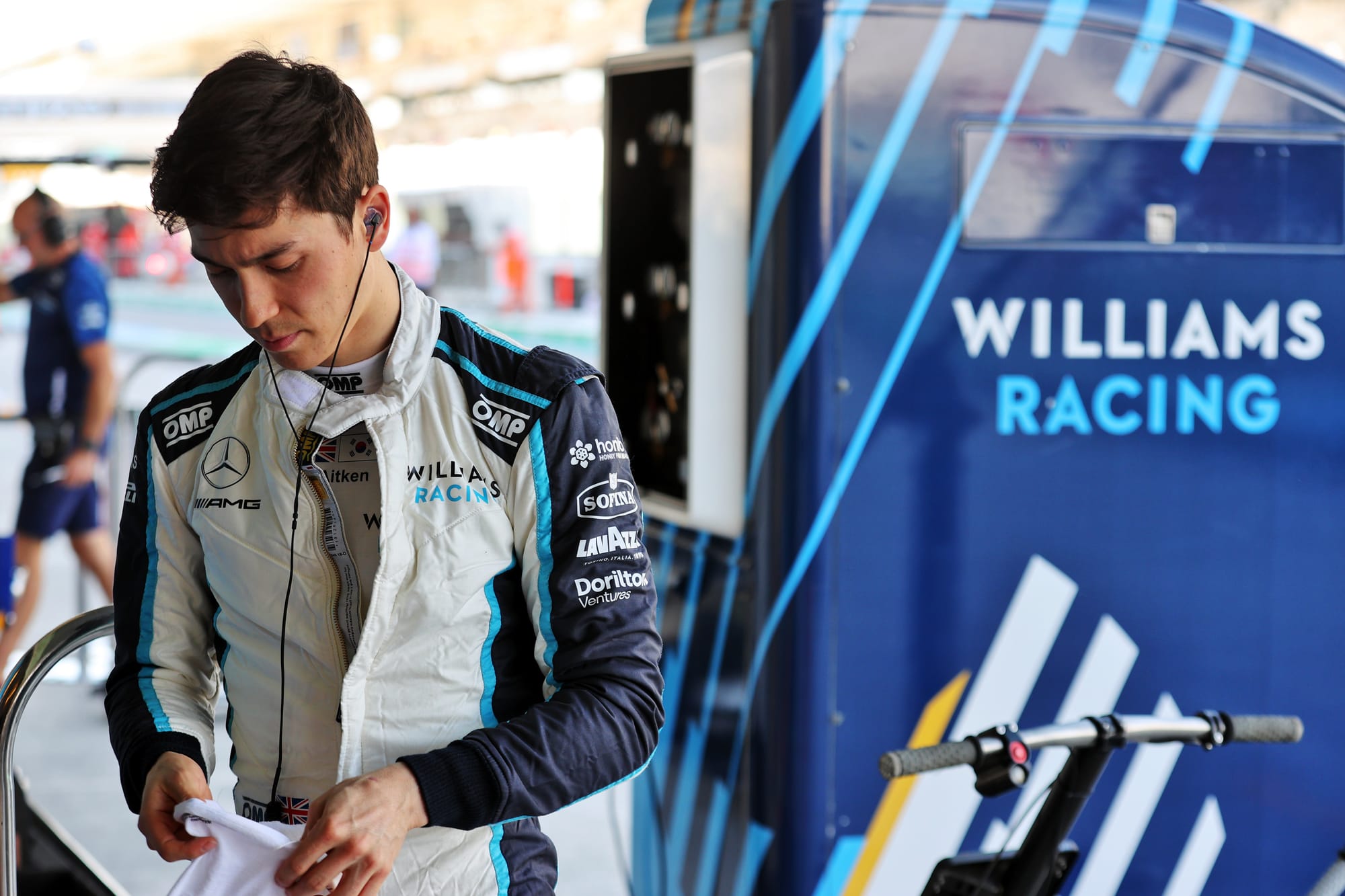
This often means that teams will use their reserves for "the bulk of the work" in the simulator on Friday, then bring them over to the track overnight.
"I've done it once or twice," Aitken says of the above weekend schedule, pointing out that it's only really a must for overseas races because if you're needed at a European race you can normally get there at short notice."
It is, ultimately, not a role any up-and-comer on the F1 ladder dreams of - but a role modern F1 cannot function without.
"Yeah, that is stuff that people don't usually think about," says Aitken of the simulator role. "It is a weird thing.
"Because teams recognize it as a very hard job to do - because you need to be skilled, you need to ideally have on-track experience of that car, which not many people do obviously. It provides a lot of value to them, so... For an experienced driver, who's coming from the outside, they'll pay good money for a person who will do that job well.
"But then yeah, if you're an academy driver you're expected to do that for free because of all the other benefits that they give you.
"It provides you opportunities to get closer to the team, to embed yourself more, all of those cliches, which really you accomplish after half a season and then from that point on it's free labour for the team.
"But that's the reality of being a Formula 2 driver, you just have to take those opportunities."
ONE CHANCE, ONE OPPORTUNITY
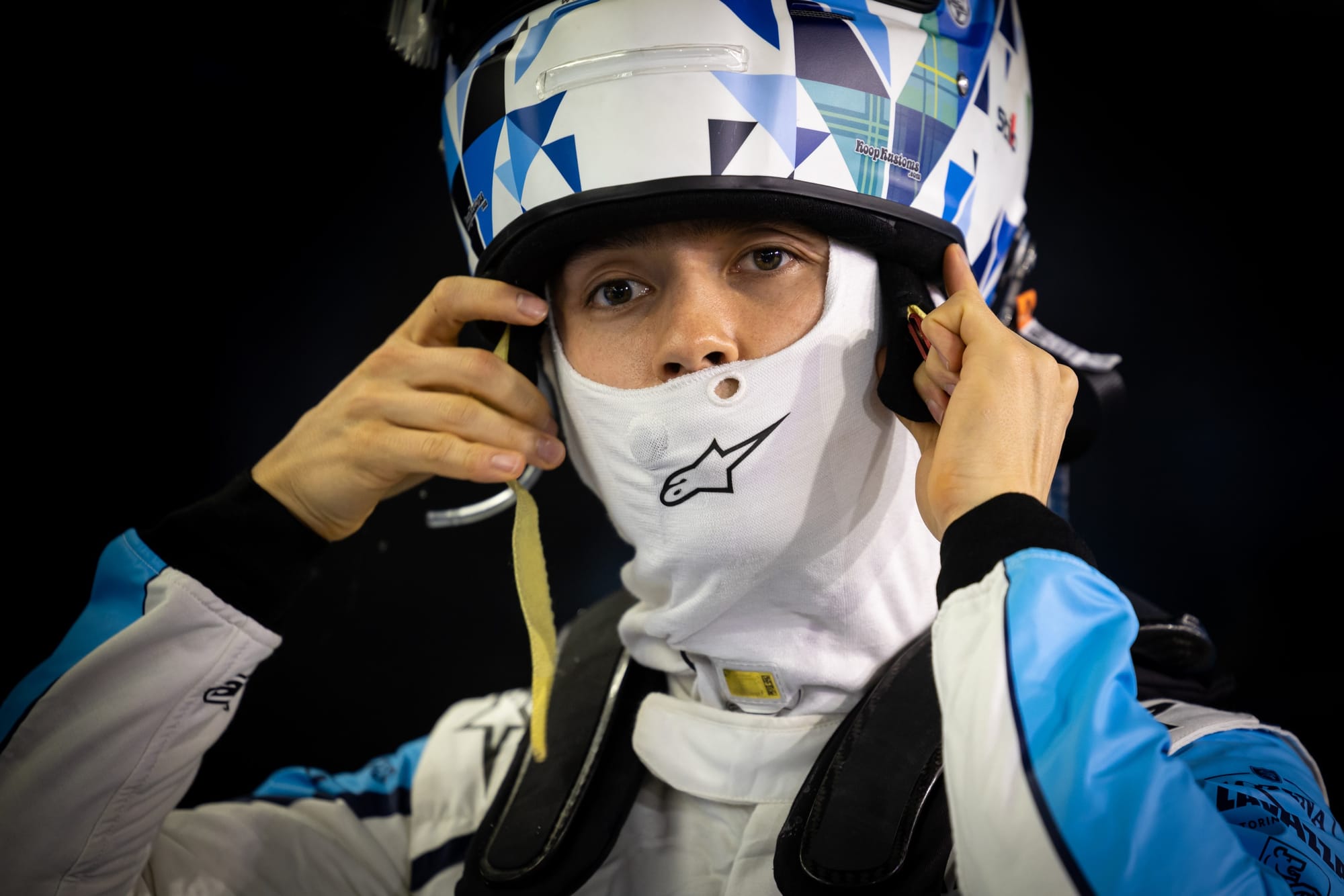
There were three teams on the F1 grid in 2020 that during the season required an injury or illness stand-in.
Aitken wasn't attached to any of them - but in being on the books at Williams he ended up in the right position anyway.
Lewis Hamilton being positive with COVID-19 was followed by Mercedes agreeing with Williams to give its on-loan protege Russell a one-race call-up in the dominant W11, and Aitken was first in line for the suddenly-vacated Williams FW45, having already done an FP1 session in it.
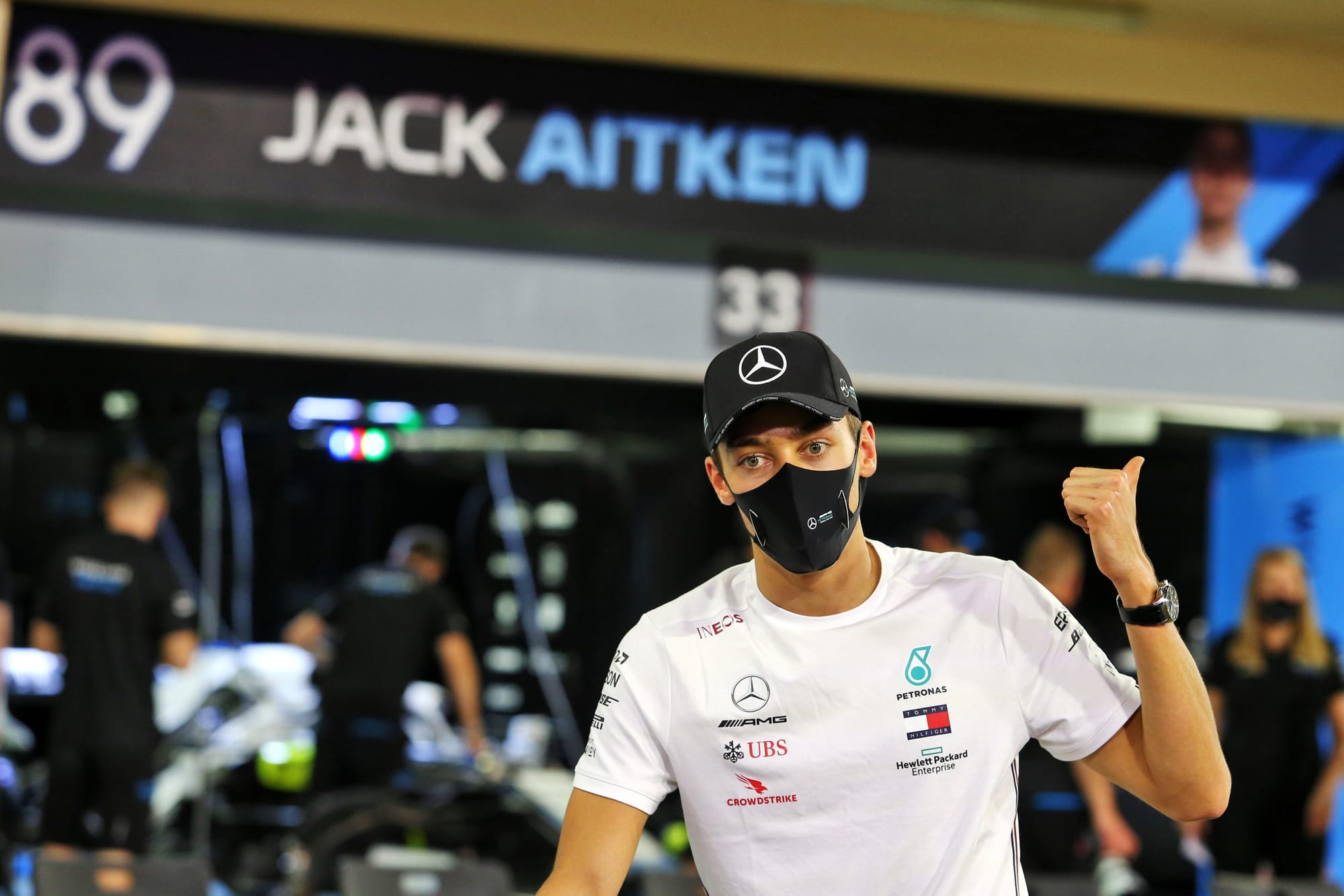
And it went pretty well! The unique and simplistic Sakhir Grand Prix layout in use that weekend for the second race of that year's Bahrain double-header probably helped, but Aitken did his part.
He was pretty much on pace with regular driver Nicholas Latifi throughout, only a couple of tenths off in qualifying after a slightly untidy final effort, and then drove a competitive, combative race.
But that's also exactly the kind of performance that's easily overshadowed if you, say, make an error that brings out a race-changing safety car - which was indeed the case with Aitken's wall-tapping spin on lap 59.
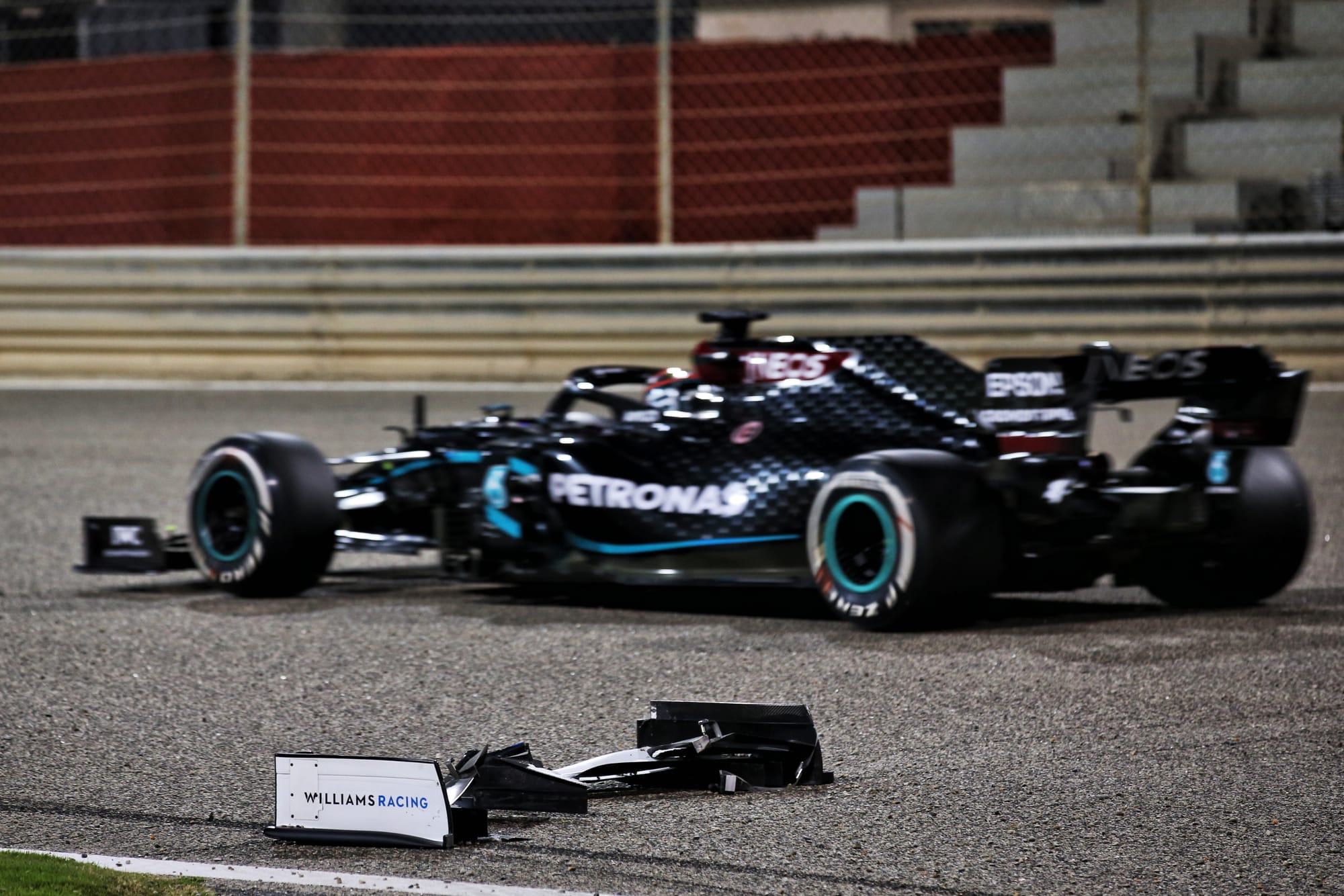
"I have no hard feelings about that," says Aitken when I tell him it could well be that that's the takeaway image from his sole F1 outing.
"For sure, you know, people will remember, it's the spin that cost George his chance to win the race, sort of irony that it was his car that did it. But... that's life, that's motorsport, it's the headlines."
But does he feel like he's now forever part of an elite club with that weekend on his CV?
"I mean, yeah... I am.
"It's difficult to talk about this without giving the wrong impression. I am forever going to be happy that I started a race."
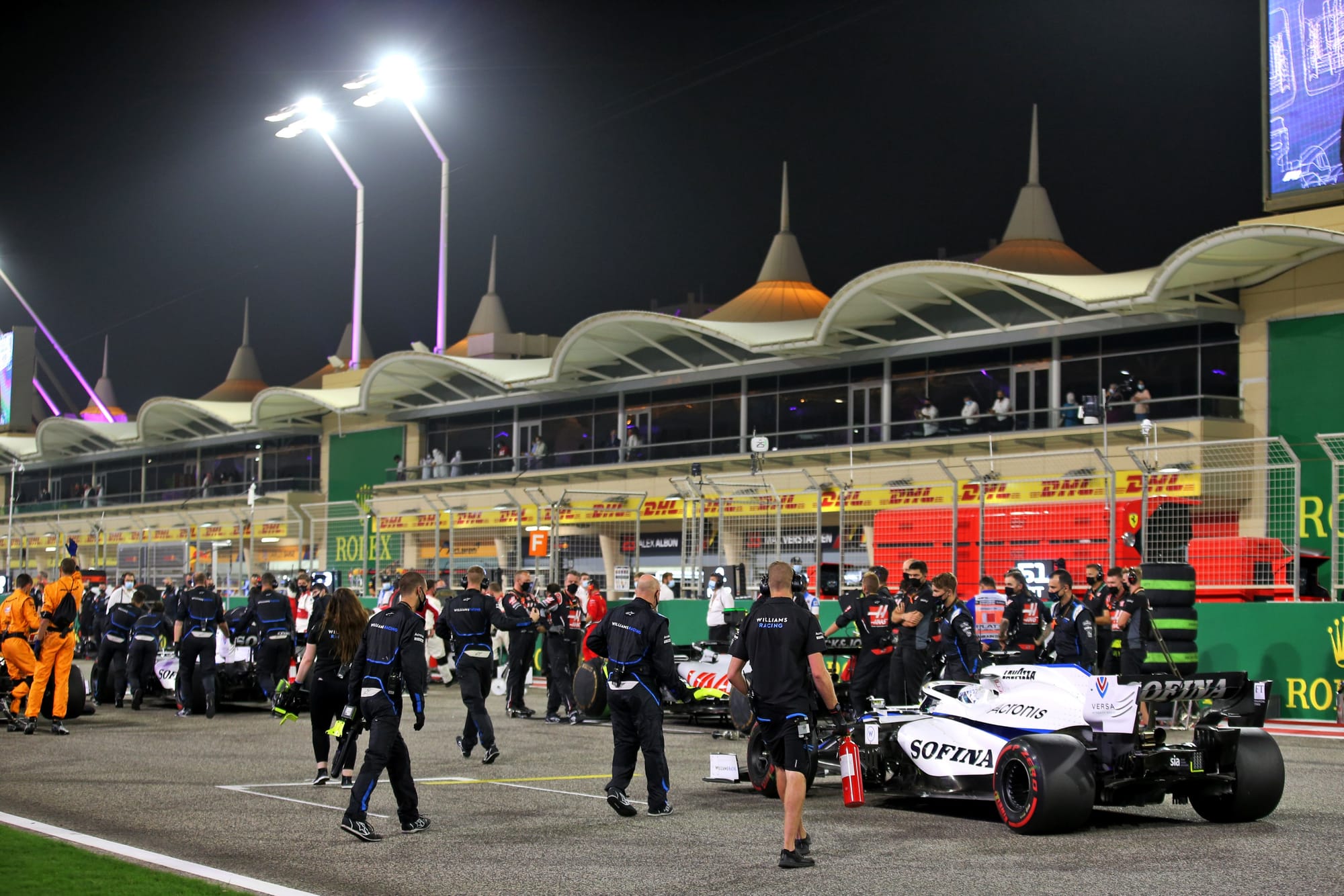
Aitken then adds "and finished a race" with a self-deprecating sort of chuckle.
"At the time I was massively frustrated with my experience because it looked like I might get a second grand prix in Abu Dhabi because Lewis was still not sure if he'd be recovered in time.
"I didn't get that, the one race I did I had the accident and that really frustrated me as a driver, just a guy who wants to show what he can do. With the benefit of time and hindsight, I look back and I was like 'actually, all the other stuff that I did, whether it was in practice, in qualy, the rest of the race, I did as good a job as I could've done'.
"And yeah, that memory of being part of the 20 or 22 drivers in the world that get to do that, even if it's just once, that's something I can take to... take to my grave, basically, and be happy that I did that."
ACCEPTING THE SITUATION
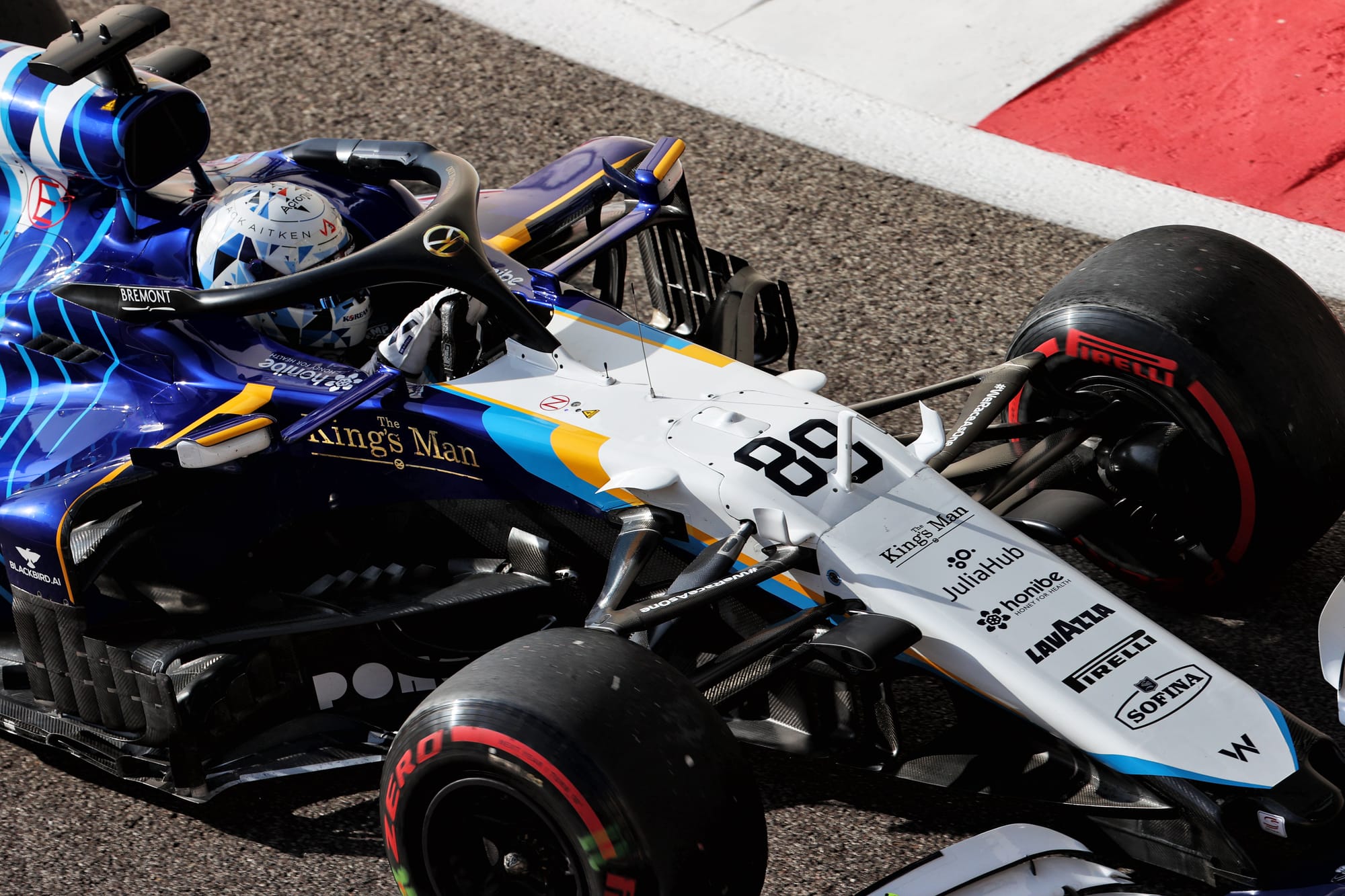
An F1 cameo can be a game-changer, at least in the short term - ask Nyck de Vries. In Aitken's case, though, it clearly was not.
Just over a year on from his one and only grand prix start, he formally split with Williams and said his goodbyes to the F1 paddock.
Did getting the Sakhir GP start make it easier to draw a line under that particular chapter? "I don't know. Probably a little bit. But I was already at that stage.
"I'd been with Williams for one year at that point, I carried on for another year afterwards but I was already thinking I need to take my career in another direction.
"And I want to be racing at a high level, doesn't matter if that's F1 or endurance or, you know, whatever."
There was no reason to expect a full-time F1 seat to fall in his lap, nor any real reason to think that he can change teams' perceptions by plugging away in F2. By 2021, he had logged three seasons in F1's main feeder already, and a fourth year "felt ridiculous" and demanded a budget Aitken also described as "ridiculous".
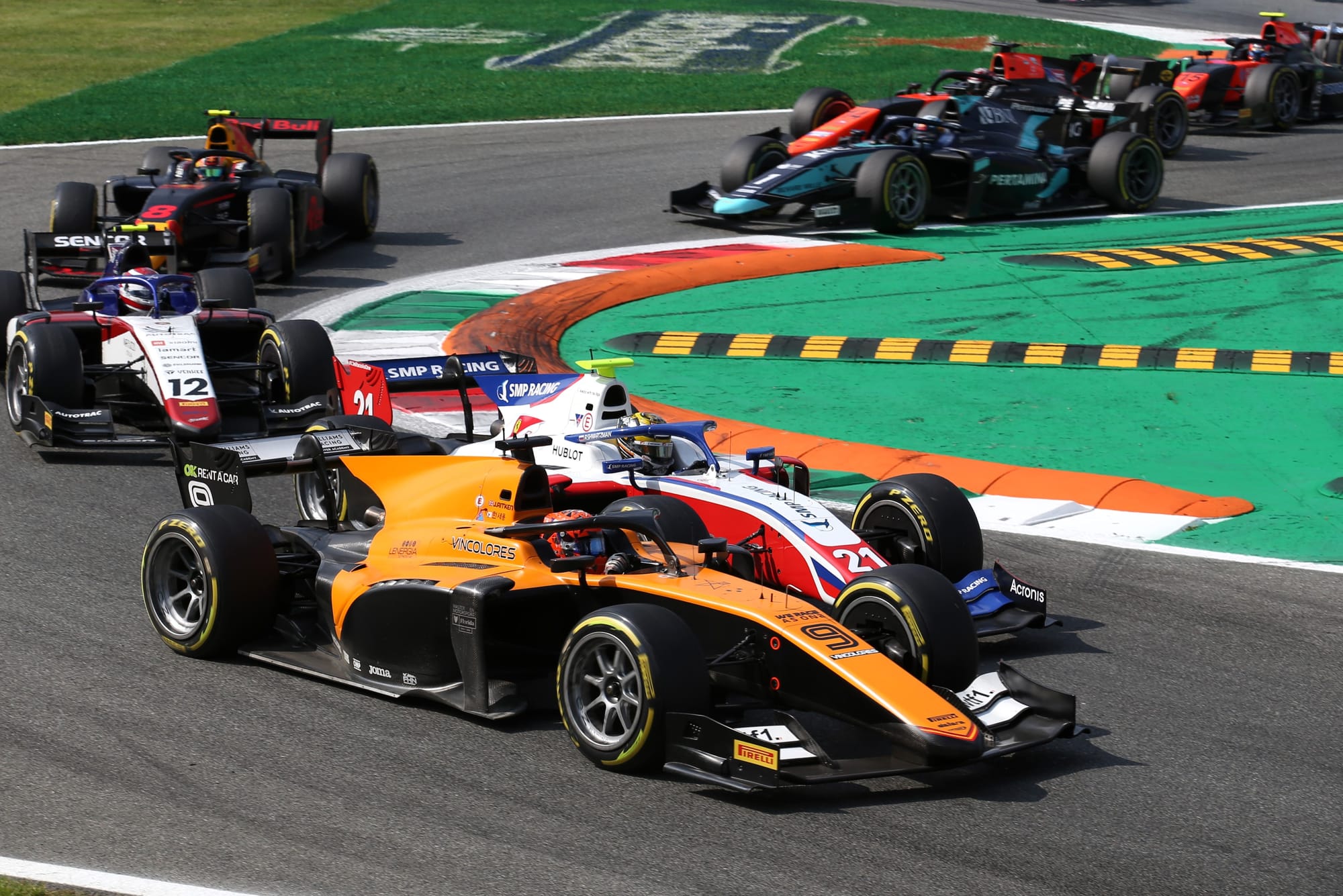
Aitken didn't go into the quality of the rides that may have been available, but no fourth-year F2 heroics would've guaranteed anything.
Since 2012, the championship has had as its 'three years or more' champions the likes of Davide Valsecchi, Fabio Leimer, Jolyon Palmer, Nyck de Vries, Felipe Drugovich and now Theo Pourchaire. Not a single one of those drivers moved into F1 the following year, though Palmer did get his shot after an extra year in reserve.
At a certain point, you are what you are in the eyes of F1 teams, right? "Exactly. You're kind of just beating a dead horse, and spending a lot of money to do it."
By that point, Aitken had already heeded "the little voice in the back of my head" telling him to diversify his racing CV. And while some drivers are happy to combine those out-of-F1 pursuits with a continued presence in the F1 paddock, being on call for any opportunities and continuing to put your name out there, even if it's in the form of a once-in-a-while cutaway shot while sat in the garage in headphones, Aitken saw precious little appeal in this.
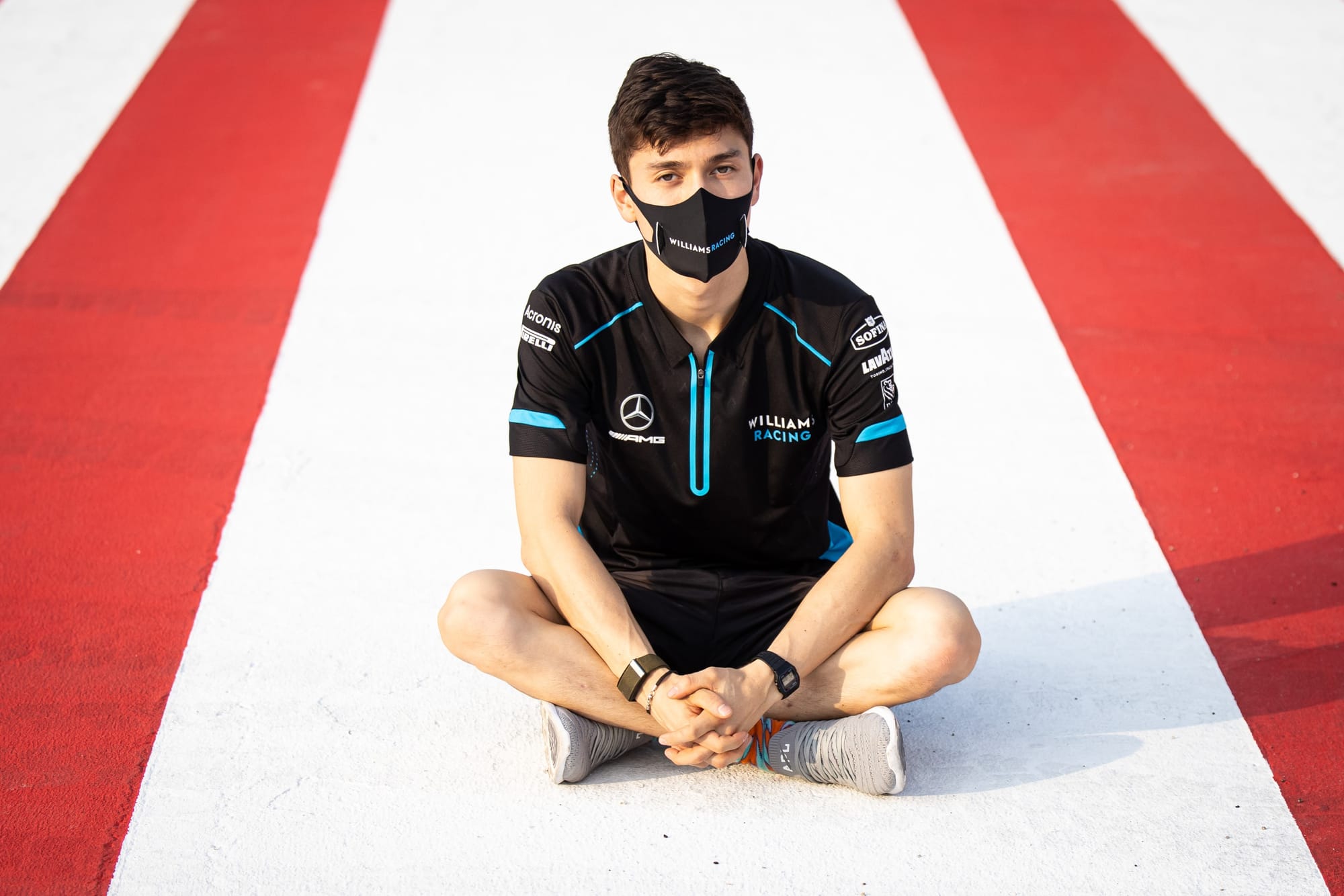
"At the end of the day, and it was becoming more and more difficult for me to combine something like that, the third driver or development driver contract, whatever you want to call it, plus my multiple racing programmes in the endurance.
"I was just thinking: why am I doing that stuff? Is it just because I like being in F1 paddock, is it going to earn me a salary, is it going to give me a shot at a seat? And the answers to most of those were no. And I was like 'well, then it doesn't make sense for me anymore'.
"And there's a lot of guys younger than me with current seats in F2 or F3 that will happily fill in those roles and take it. So, I felt like it was a natural end, you know?"
FINDING A LANE
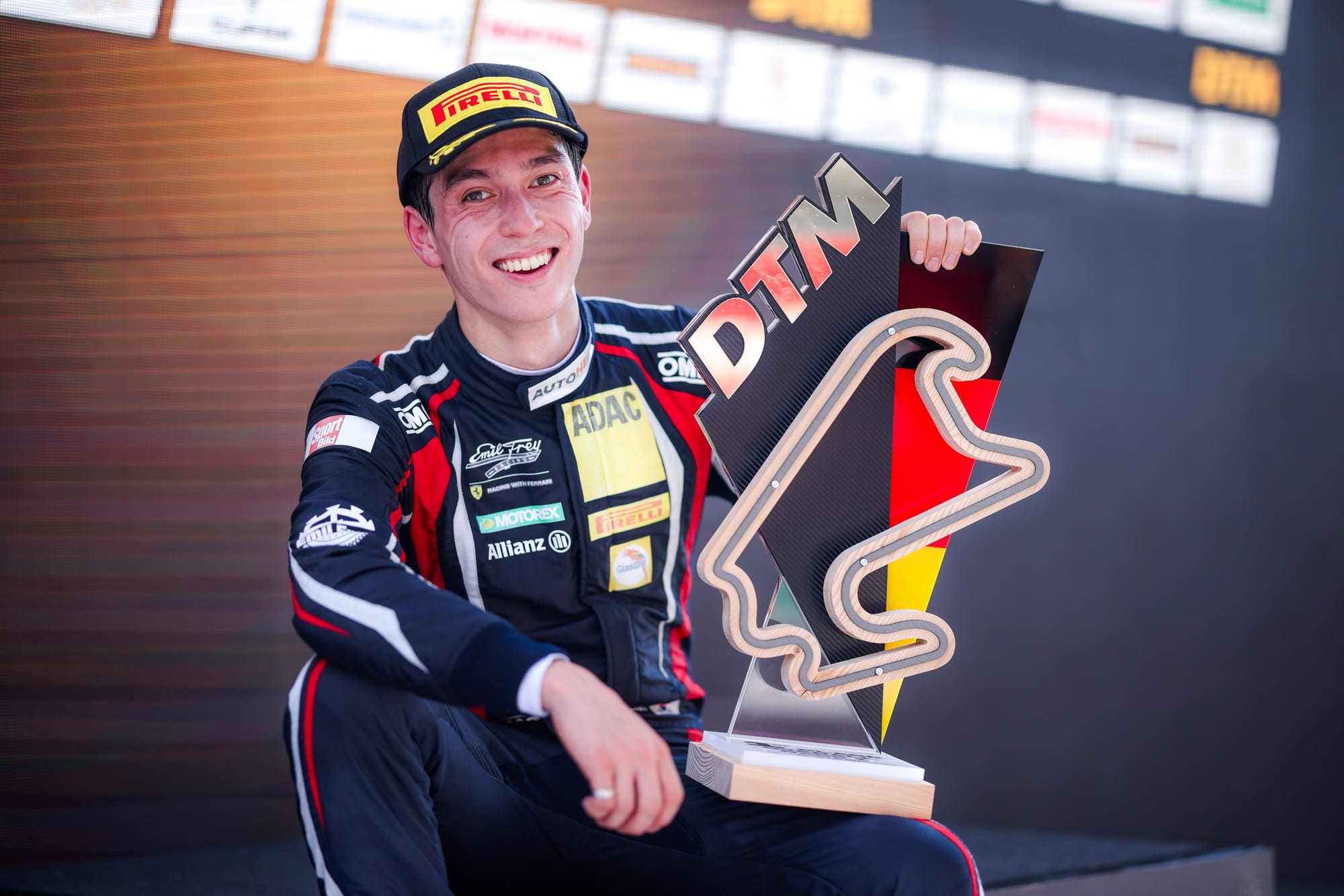
Aitken's first steps in sportscars came with the Swiss Emil Frey team, and he remained a major part of its set-up in 2023, giving it its first race win in the new GT3-spec DTM in the process.
But he was knocking on the door of a top-level prototype gig virtually right away, too, and it didn't take long - having helped the crew of Charlie Eastwood and Salih Yoluc to the 2022 Europeans Le Mans LMP2 Pro-Am title, Aitken got a phone call that "came out of the blue a little bit".
It was Cadillac, ramping up its new LMDh programme and handing Aitken a part-time schedule in 2023.
"It was a bit of a relief," Aitken admits. "I think... it's the kind of gig that you are always waiting for that phone call to come, knowing full well that the odds are kind of against you, because even if you perform well, have the right people seeing your performances, is a seat going to open up at the right time? All of these things have to sort of fall into place."
The first Cadillac year would include both an obvious low point - Aitken crashing on the first lap of the Le Mans 24 Hours, of which he said "I felt quite cruel to do that to the team [but] they were great about it" - and yet huge successes in the American IMSA series.
There, Aitken was part of the 12 Hours of Sebring race-winning crew, even if the win was somewhat fortuitous. "The manner in which we won it, you had to be there at the end but, you know, in the end it was a gift - you know, having three cars having a crash in front of us," he chuckles.
In any case, that set the foundation for Aitken to be part of the championship-winning roster in the IMSA's Michelin Endurance Cup - the 'sub-championship' for the series' longer races - and also to contribute to the overall IMSA title for his full-season team-mates Pipo Derani and Alexander Sims.
Aitken has no issue now admitting that he always wanted this part-time opportunity to turn into a full-time drive. 'In my mind, it was certainly where I wanted to go with it. I wasn't convinced it was going to happen immediately, because in my mind, Cadillac and [parent company] GM as a whole have quite a big roster of drivers, that are bloody good."
But happen it did. Starting in 2024, he is one of Cadillac's IMSA full-timers. He has - in a sense - made it.
PARALLEL TRACK
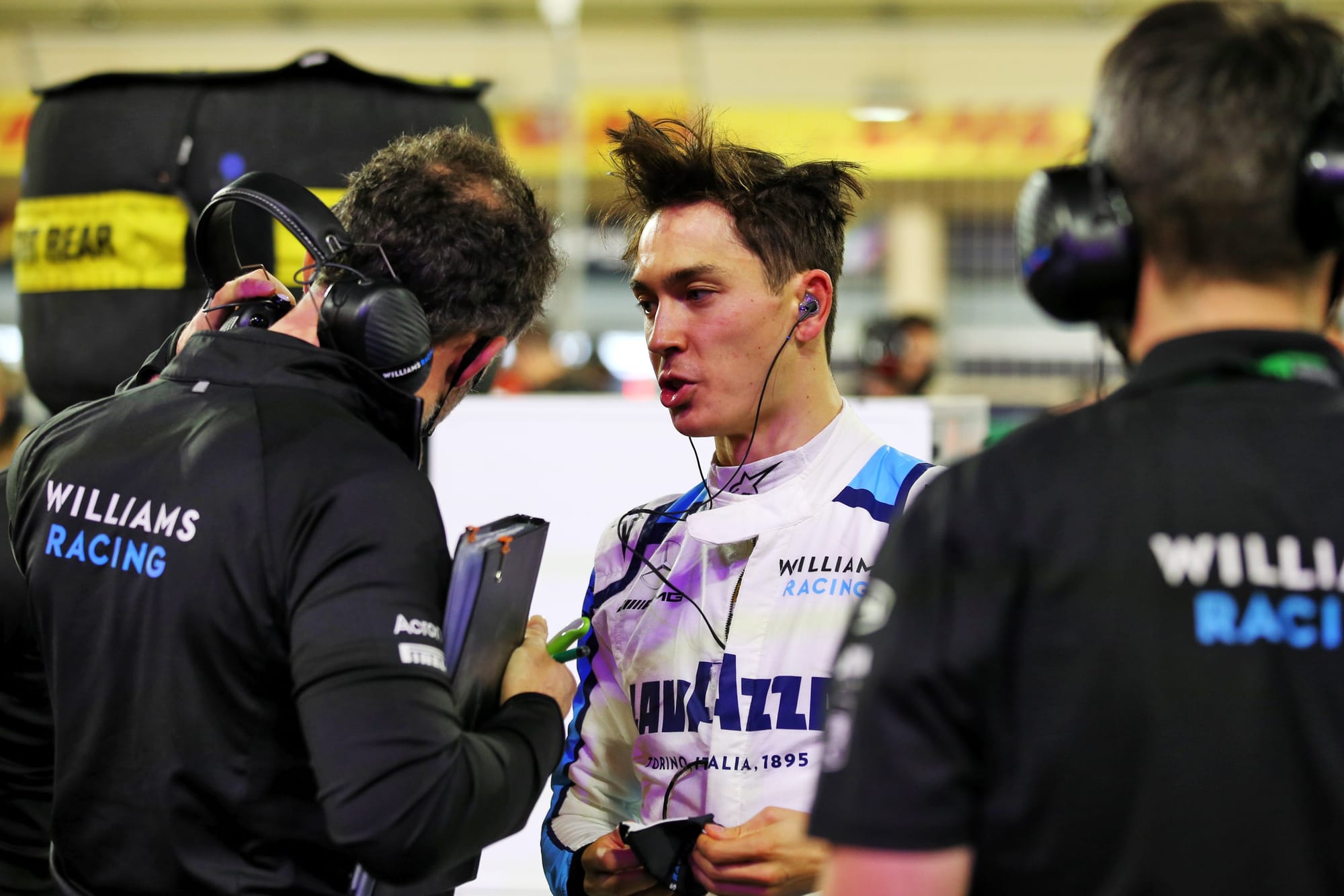
Is he better off then than if he had done so good in that Sakhir GP drive - say, comprehensively outqualifying Latifi and dragging the car into the points in that chaotic race (though effectively he was the one who kicked off the chaos) - that a De Vries-like situation played out?
De Vries, in the end, parlayed his star Williams cameo into a half-season at AlphaTauri before being unceremoniously discarded. The Dutchman's career is probably not worse off for having given F1 a go (he'll drive a Toyota Hypercar this year, which was always on the cards one way or another, and has found his way back to Formula E) - but it's hard to say the AlphaTauri stint has materially enhanced it.
"Oh yeah, I mean, especially in F1 more than other disciplines - I think it's hyper-reactive to the kind of results that you're getting," Aitken acknowledges when I posit to him, with De Vries the example, that even breaking through into F1 guarantees nothing. "And it's very difficult, of course."
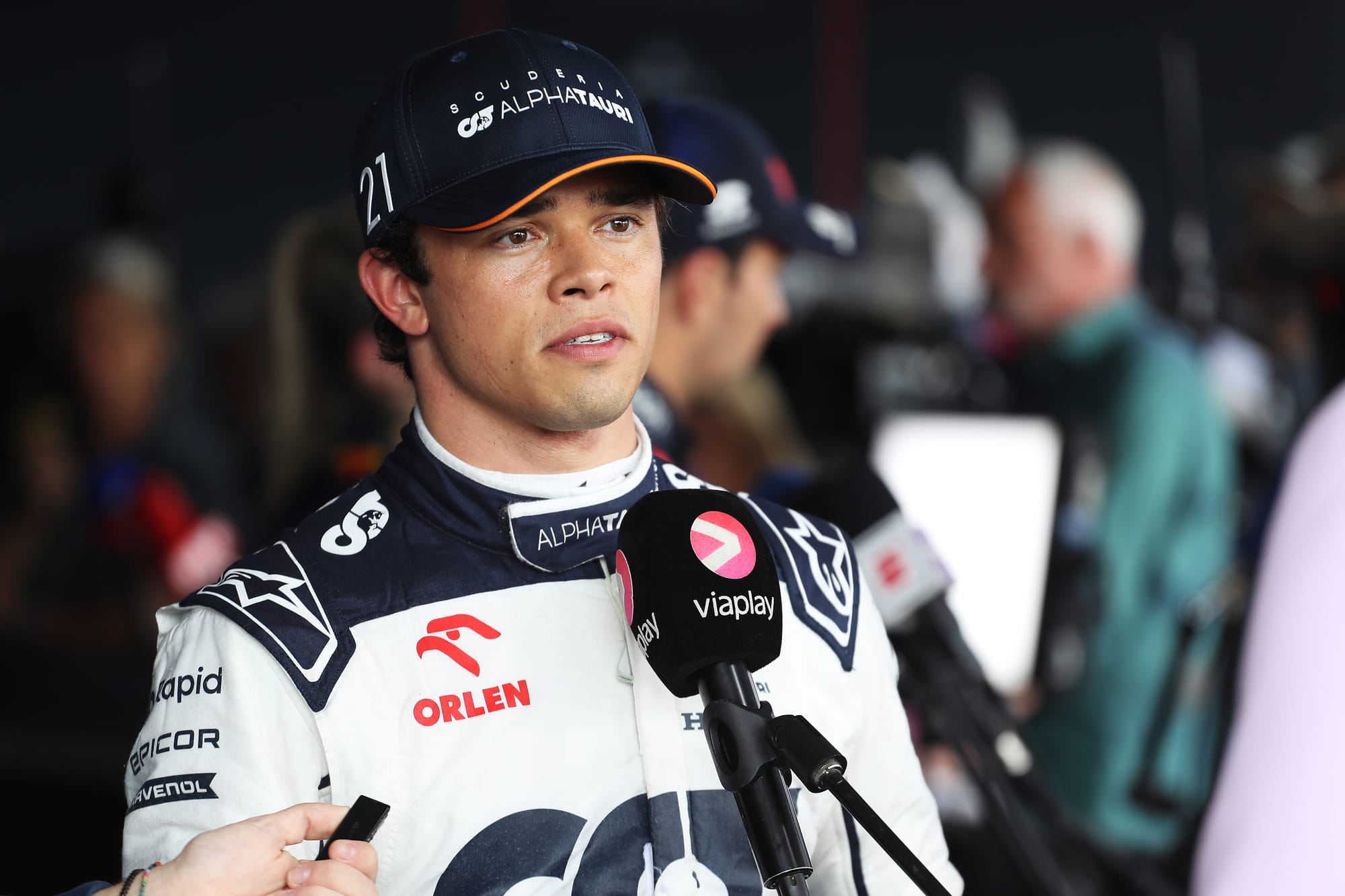
Not that the implication is that you can take it easy in sportscars - a different answer clearly demonstrates the level of respect Aitken has for his current rivals' abilities, not just the obvious prototype stars but the GT3 'rank-and-file', if you will.
He pauses when when I ask him whether there was any driver among his team-mates in his career whose data has really convinced him he's seeing something special. "Definitely not me. I look at my data and I think 'what the f*** are you doing?'," he jokes.
But after then bringing up the no-brainer example of Russell - "there's no doubt he's a really really strong driver as a package, and he's showing that in F1" - Aitken zeroes in on another answer.
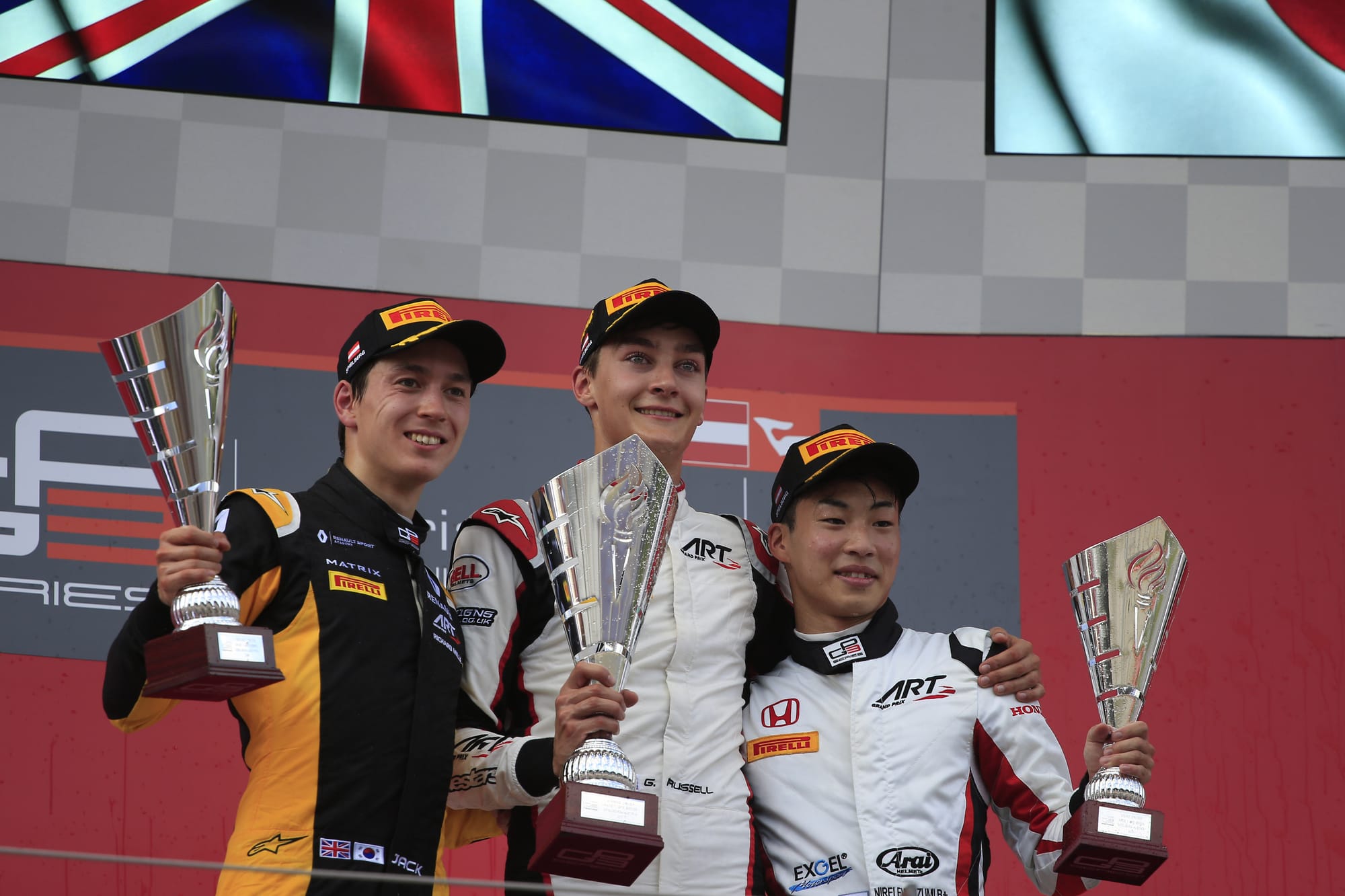
"To be honest, when I came into GTs for the first time, and I started comparing to some of the pro Lambo guys - 'cause we [Emil Frey] were with Lambo at the time," he recalls.
"The guys in this team - so, [Giacomo] Altoe, [Albert] Costa, [Ricardo] Feller. And I was like 'how the hell are you driving this lump of steel and metal so fast?'.
"It's a very different style. You use different parts of the track, and it took me a bit of time to understand that. So, that was quite a wake-up call in a way."
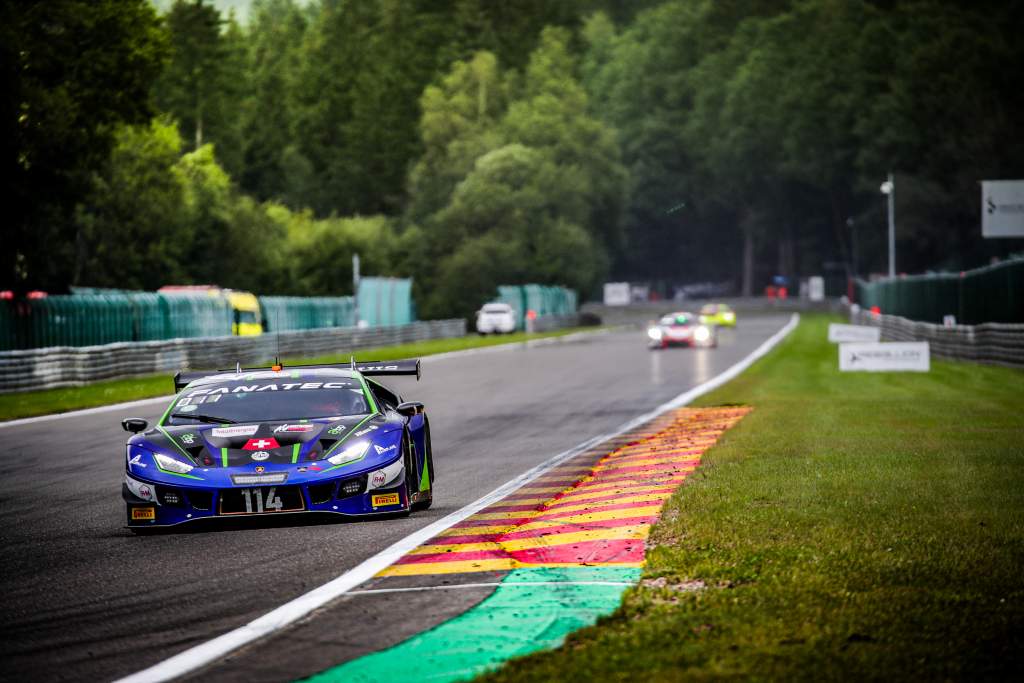
It's that kind of attitude that's probably also made it easier to fully commit to life outside of F1. Well, almost fully.
Aitken tells me he'll "pick up" the call if an F1 team is ringing with a simulator gig offer, "but there's an invoice going back!", He then admits that he has already helped out with some F1 sim work since leaving Williams - but can't say what team it is.
"In Oxfordshire [where Aitken lives] you have a lot of teams that need drivers," he says. I joke that it must be Stake/Sauber then, and he's happy to play along: "Yeah. Ferrari. Alfa Romeo."
"Yeah, no, it's something that I can do if I have more time," he adds. "I haven't got anything going on right now [in that regard] and I'm quite happy with that."
It's also true, though, that a regular simulator/reserve driver role - the kind that had bored Aitken so in his time around the F1 paddock - became potentially more rewarding just as he'd moved up.
F1's introduction of the rookie practice rule has meant that teams that don't have a suitable junior have often been happy to give a session to the sim driver - see the recent call-up for a junior rival of Aitken's, Jake Dennis, who drove the championship-winning Red Bull at Abu Dhabi.
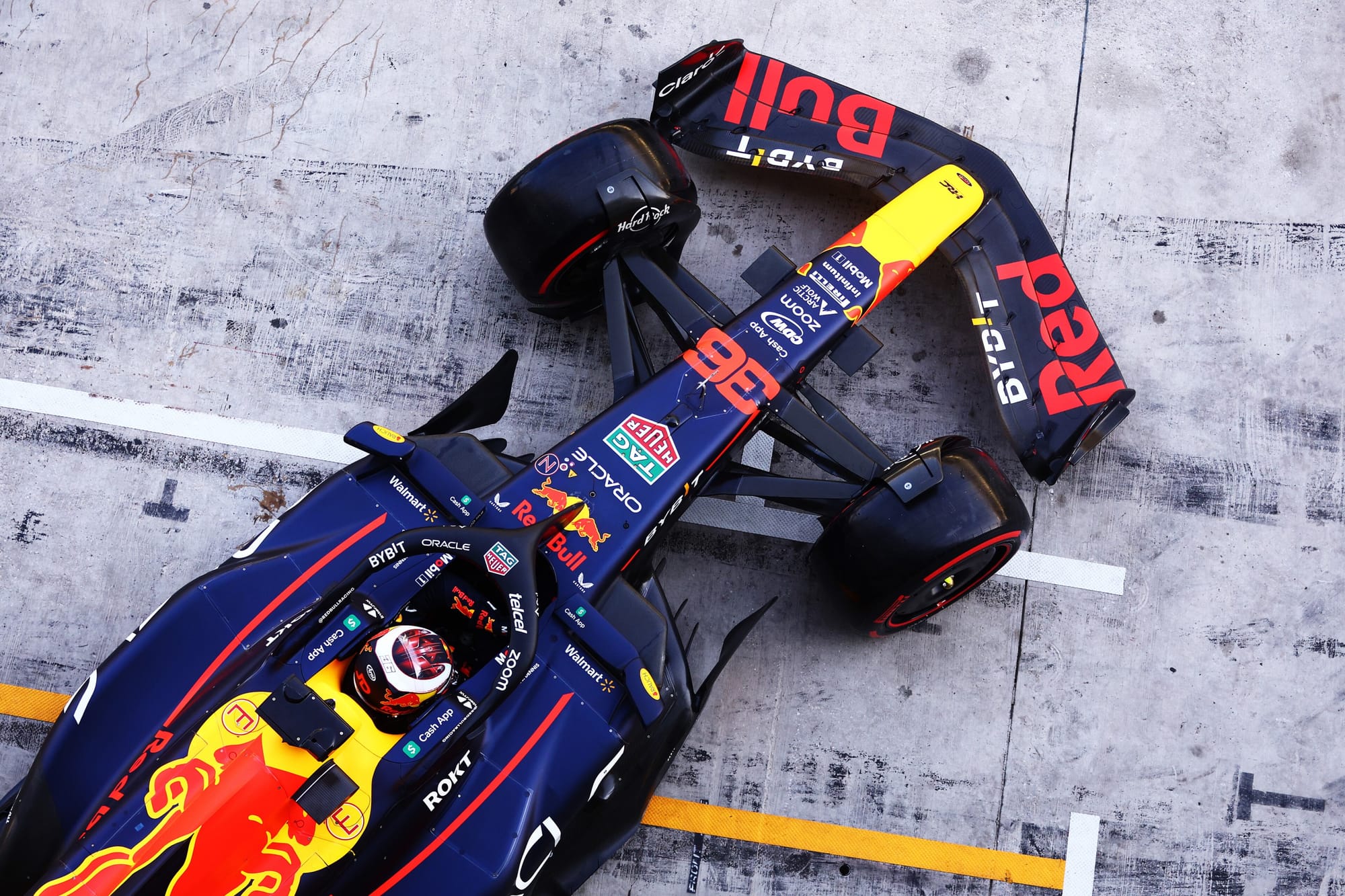
But Aitken says nobody's called him up for an FP1 box-tick, and it doesn't sound like he's making calls to offer his services either.
"I'm still eligible, technically still a rookie!" he smirks.
"If I did get the call, of course I'd like to drive an F1 car again, who wouldn't? But I'm also realistic that, you've got hordes of F2 and F3 drivers that are probably better picks for the teams that are evaluating guys in the future.
"No, I think those days are over, and I've kind of moved on in my head as well."



